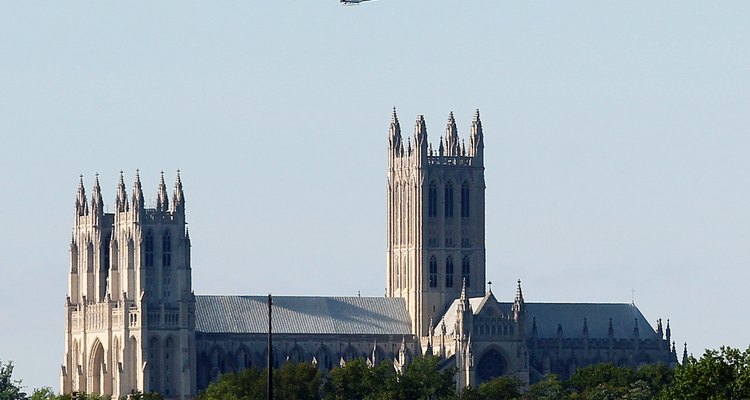
Organized after the American Revolution, the Episcopal Church contains nine provinces and diocese throughout the world. This denomination allows the ordination of women and homosexuals as its doctrine focuses on civil rights and inclusion. The Episcopal Church seeks those who meet the requirements and feel called to the priesthood. According to the document Discerning Paths of Ministry, the Episcopal Church does not require an individual to have a bachelor’s degree or its equivalent to become a priest, but it is recommended.
Be baptized, confirmed or received into the Episcopal Church. You must provide documented proof of such an event, which you can receive from your rector.
Be in good standing and a leader in an Episcopal Church for at least a year.
Talk to your rector about your call to the priesthood. This individual can help you begin the discernment process and obtain the endorsements you need for your application.
Complete the Context for Ministry program. This discernment program begins with the Day of Discovery, followed by 12 weeks of workshops that teach about the priesthood, help you find a spiritual advisor and assist you in completing a ministry project.
Meet with your rector and obtain a letter of recommendation and parish endorsement. During this meeting, verify that you meet all the prerequisites -- such as passing a background investigation -- to meet with a discernment committee.
Meet with the bishop in your diocese about your call to the priesthood and request to meet with Deanery Discernment Committee.
Meet with Deanery Discernment Committee. When you meet with this committee, you'll attend a set of interviews with representatives from the Commission on Ministry program. After the interviews, the committee will make a recommendation to the bishop, who must approve the continuation of the ordination process.
Send the nomination package to the vocations secretary in your diocese. In the package, include a letter of recommendation from your rector, a recent photo of yourself, the Application for Holy Orders, a transcript of any postsecondary education, the Endorsement of Nomination for Holy Order and the Deanery Discernment Committee’s report.
Pass a physical and psychological evaluation from an approved provider. The Commission on Ministry states that a psychological evaluation helps you learn about your strengths, weaknesses and your readiness for a life of service.
Send the application package to the vocations secretary in your diocese. In the package, include a letter of recommendation from your rector, a recent photo of yourself, the Application for Holy Orders, a transcript of any postsecondary education, the Endorsement of Nomination for Holy Order and the Deanery Discernment Committee’s report. Your application package should also include a report of your medical and psychological evaluations, three character references and a letter of support from your partner or spouse, if applicable.
Pass a background investigation.
Receive the recommendation for Holy Orders.
Complete the postulancy and candidacy periods. During this time, you will attend preparation seminars, anti-racism training and workshops regarding the prevention of sexual misconduct. At the end of your candidacy, you must pass the General Ordination Exam, which tests your knowledge about the Bible, traditions of the Episcopal Church and theology, along with your level of understanding regarding spiritual development, human awareness and spiritual discipline.
Serve as a deacon for at least six months.
Receive the recommendation of ordination to the priesthood by the Standing Committee and be ordained by the bishop.
Related Articles

How to Become a Unity Church Ordained ...

How to Get Married in the Episcopal ...

How to Become a Wedding Officiant in ...

How to Get Married in Prison in ...

How to Prepare a Church Charter

How to Get a Christian Counselor ...

How to Become a Marriage Officiant in ...

How to Get Married by the Justice of ...

Preschool Teacher Requirements in ...

Wedding Requirements & Checklist for a ...

What Are Letters of Office?

Christian Wedding Prayers and Blessings

How to Plan a Catholic Destination ...

How to Open a Daycare in North Carolina

Pennsylvania Grants for Adopted Children

How to Get Certified to Marry Couples

How to Become a Member of Native Tribes

How to Get Ordained to Officiate a ...

How to Become an Emancipated Minor

How to Write a Proposal for an ...
References
Writer Bio
Flora Richards-Gustafson has been writing professionally since 2003. She creates copy for websites, marketing materials and printed publications. Richards-Gustafson specializes in SEO and writing about small-business strategies, health and beauty, interior design, emergency preparedness and education. Richards-Gustafson received a Bachelor of Arts from George Fox University in 2003 and was recognized by Cambridge's "Who's Who" in 2009 as a leading woman entrepreneur.
Photo Credits
Mark Wilson/Getty Images News/Getty Images